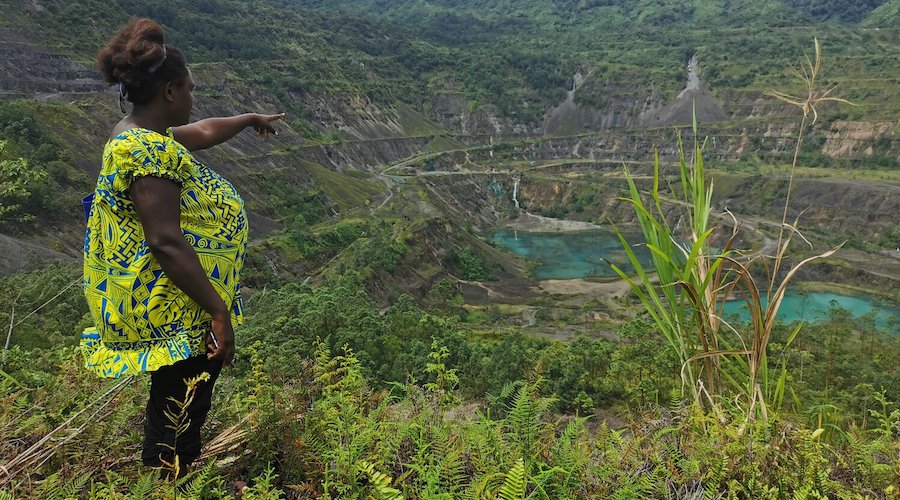Bougainville residents applaud Australia’s decision to accept human rights complaint against Rio Tinto

The operation was run by Rio Tinto subsidiary Bougainville Copper (BCL) and was abandoned in the 1990s due to a civil war that was largely fought over how mine profits should be shared. Some 25 years later, in 2016, Rio handed its shareholding to national and local governments.
But people in Bougainville say that the miner is responsible for the vast quantities of waste left by the copper and gold mine, which are poisoning their water sources, flooding their lands and sacred sites and causing a range of health problems.
The complaint alleges environmental and human rights violations caused by Rio Tinto’s former Panguna mine on the island
The legal documentation that supports the residents’ claims was filed with the Australian OECD National Contact Point (AusNCP) in the Department of Treasury and presents evidence of Rio Tinto’s failure to clean up tonnes of waste pollution left by the mine and mitigate the risks it poses to these communities. It also argues that such inaction breaches human rights and environmental standards set out in the OECD Guidelines for Multinational Enterprises.
The AusNCP has the power to investigate and mediate disputes between communities and companies, to issue findings on whether companies are in breach of their obligations under the OECD Guidelines and recommend actions to address any breaches that have occurred.
Following the filing of the complaint, Rio Tinto released a public statement committing to entering into discussions with the communities affected along with other relevant stakeholders such as the Autonomous Bougainville Government.
Rio also said that, despite not having had staff at the mine since 1990, it was aware of the “deterioration of mining infrastructure at the site and surrounding areas, and claims of resulting adverse environmental and social, including human rights, impacts.”
Since the AusNCP formally accepted the complaint this week, the discussions between the miner and the community can now begin through a facilitated conciliation process.
“People in villages downstream of the mine are living in a deteriorating, highly dangerous situation,” Keren Adams, legal director at the Human Rights Law Centre, said in the media brief. “We welcome Rio’s public commitment to finally sit down with them but we have yet to see what meaningful action the company is prepared to take. Addressing the dangers people are living with and cleaning up the river valley will undoubtedly require significant resourcing.”




